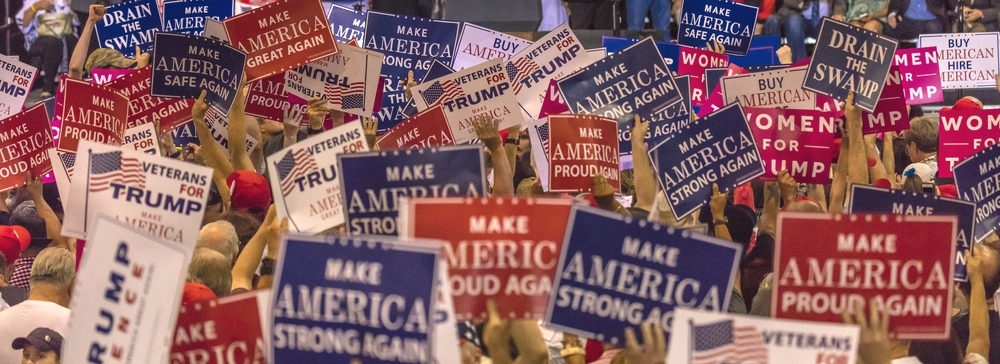
Practical information
Ifri’s Program on North America held the 18th edition of its annual conference on the United States. A few months away from the next U.S. presidential election, the event provided an opportunity to reflect on the political situation in the United States, the possible evolution of American foreign policy and the increasingly thorny issue of economic sanctions.

PROGRAM
9:30-11am: U.S. Sanction Policy, Softpower or Hardpower?
The United States imposes economic sanctions to fight corruption around the world, but also to support its foreign policy choices. While allied nations in Europe naturally align with many of these geopolitical sanctions, European private companies and businesses find themselves regularly hindered in their development abroad. How can they adapt to the weaponization of U.S. sanctions?
- Eric-André Martin, Research Fellow, Ifri
- Eléonore Peyrat, Head of Unit, Fight against Financial Crime and International Sanctions, Direction générale du Trésor
- Marie de Saint-Chéron, Director for European Affairs, Safran
Moderator : Marion Leblanc-Wohrer, author of “Comply or Die?”, Potomac Paper n°34, Ifri, march 2018
11:30am-1pm: The 2020 Campaign and the Impeachment Process
The Democratic Party primary campaign is in full swing and the Impeachment inquiry against Donald Trump proceeds speedily. What is the state of American public opinion less than a year before the elections? How are conservative and progressive media lining up to cover the event?
- John Zogby,Senior Partner, John Zogby Strategies LLC and Founder, The Zogby Poll
- Sébastien Mort, Associate Professor of American Studies at Université de Lorraine in Metz, France
- Adam Nossiter, Chief of the Paris Bureau, The New York Times
Moderator : Laure Mandeville, International Correspondent, Le Figaro
The video of the panel in its entirety is available below:
2:15-4pm: U.S. Foreign Policy in the Age of Trump
Despite a very particular style, the Trump administration's foreign policy continues on many points the American withdrawal from World affairs which had started under Barack Obama. The main trends of thought of American foreign policy show this evolution, with the resurgence of non-interventionist and even nationalist ideas amongs DC think-tankers.
- Gordon Adams, Professor Emeritus of International Relations, School of International Service, American University
- Michael Lind, Visiting Professor, Lyndon B. Johnson School of Public Affairs, The University of Texas at Austin
- Manuel Lafont-Rapnouil, Director of the Policy Planning Staff (Centre d’Analyse, de Prévision et de Stratégie), Ministry of Europe and Foreign Affairs of the French Republic
Moderator : Laurence Nardon, Head of Ifri's North America Program
The video of the panel in its entirety is available below:
Sponsored by the U.S. Embassy in France
With the support of Viel & Cie and Foundation Clarence Westbury
Speakers
Related Subjects
Other events

Paris Naval Conference 2026: Naval Rearmament and Operations in Contested Waters
This fourth edition of the Paris Naval Conference (CNP), bringing together high-level military, industrial, and academic speakers, will address the challenges associated with general naval rearmament and naval operations in increasingly contested environments.







